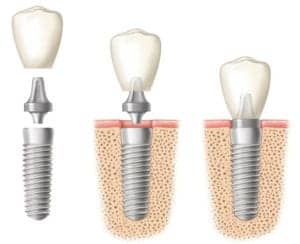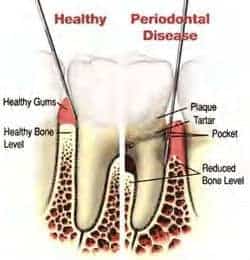Periodontal Disease and Dental Implants
Hi, My periodontist recently replaced one of my missing teeth with a dental implant. It had fallen out because I have periodontal disease that went untreated for many years. I was very happy about replacing the tooth, not only because it just looks much better, but because I felt it was the answer to my periodontal disease, at least for that tooth. I must have misunderstood something because I was surprised when he told me I could still get periodontal disease around that tooth. Somehow, I thought that the titanium implant would be impervious. Can you explain?
Deb in Atlanta
Hi Deb,
While the titanium root from of a dental implant may be less susceptible to the effects of untreated periodontal disease, you still need to continue periodontal maintenance to prevent losing the implant itself. Periodontal disease doesn’t just attack the tooth root, it undermines the soft tissues and jawbone that support the root, so even if the titanium were “impervious,” as you said, there would still be a need to address the periodontal disease.
If you have lost teeth to periodontal disease, you may already know that it is a chronic condition that is never really “cured.” It may have been disappointing to learn that your new tooth will not somehow be able to withstand the effects of gum disease, but with continued periodontal maintenance, the outcome will be much better than it would have been otherwise.

Good luck to you in maintaining your dental health.
This Blog is brought to you by David Pumphrey of Pumphrey Periodontics of Atlanta.








